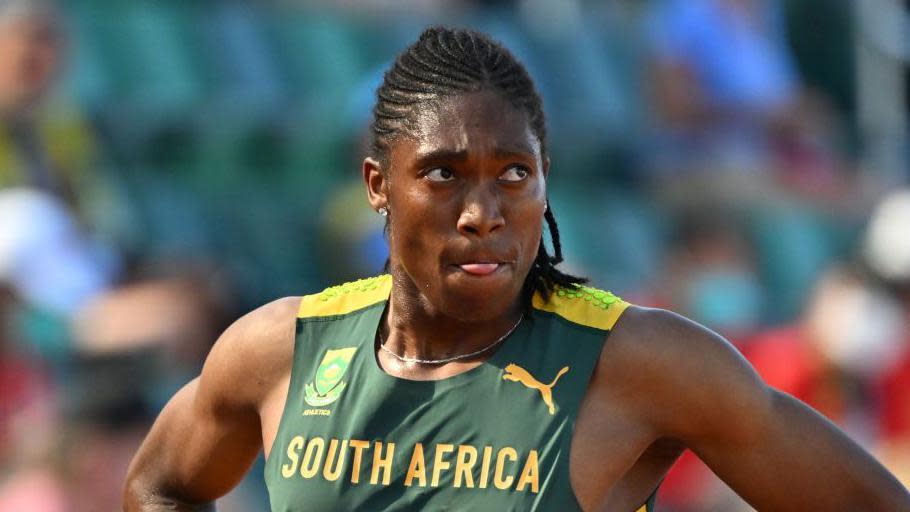Judges to hear Semenya case before final ruling

The Grand Chamber of the European Court of Human Rights will hear the case involving middle-distance runner Caster Semenya on Wednesday before a final ruling.
Semenya, 32, was born with differences of sexual development (DSD) and cannot compete in female track events without taking testosterone-reducing drugs.
The South African believes World Athletics is showing discrimination against athletes with her condition.
Last July, the ECHR ruled in favour of Semenya in a case related to testosterone levels in female athletes.
The case at the ECHR was not against sporting bodies or DSD rules - but specifically against the government of Switzerland for not protecting Semenya's rights and dates back to a Swiss Supreme Court ruling three years ago.
The Swiss government requested the matter be referred to the court's Grand Chamber.
The ECHR Grand Chamber is convened in exceptional cases and comprises 17 judges with its verdicts not open to appeal.
As the case concerns the Swiss government and not athletics' governing body, it is unlikely the decision will immediately affect the current restrictions on DSD athletes.
World Athletics rules restrict testosterone levels in female runners competing in track events from 400m up to the mile.
Semenya, and other athletes with DSD who have testosterone levels above the approved level, cannot compete in female track events without taking testosterone-reducing medication.
Semenya said in October last year she was turning her attention to "winning battles against the authorities" rather than collecting medals.
She appealed against World Athletics' rules at the Switzerland-based Court of Arbitration for Sport (Cas), but eventually lost in what amounted to a landmark case in 2019.
Switzerland's top court rejected another appeal by Semenya in September 2020, after her team again sought to challenge the Cas ruling.
It was this last act by the Swiss court that formed the basis of a 2021 application lodged by Semenya at the ECHR.
World Athletics has said its DSD regulations "are a necessary, reasonable and proportionate means of protecting fair competition in the female category".
Who is Caster Semenya?
Semenya is a two-time Olympic champion and three-time world champion over 800m.
Between 2009 and 2019, the South African dominated her sport, sealing a 30th consecutive victory when she won the Doha Diamond League 800m in May 2019.
She was given a hero's welcome in South Africa after picking up her first World Championship gold in 2009, with thousands of jubilant fans turning out at Johannesburg airport to greet her.
However, her rapid rise from unknown teenager to global star was also accompanied by scrutiny over her gender and possible advantages in her biology.
It was later revealed that the 32-year-old was born with DSD, one outcome of which means she has an elevated level of testosterone - a hormone that can increase muscle mass and strength.
It was in the Cas ruling that Semenya's specific DSD was confirmed as 46 XY 5-ARD (5-alpha-reductase deficiency). People with this particular DSD have the male XY chromosomes. Some are assigned female or male at birth depending on their external genitalia.
Semenya told BBC Sport she was "born without a uterus" and born "with internal testicles" and said: "I am a woman and have a vagina".
Cas said athletes such as Semenya with 5-ARD have "circulating testosterone at the level of the male 46 XY population and not at the level of the female 46 XX population", which gives them "a significant sporting advantage over 46 XX female athletes".

